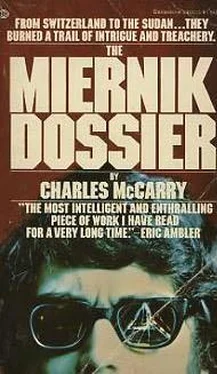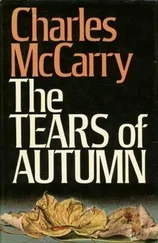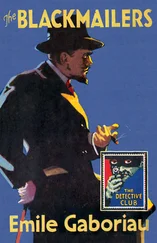If I were you, I’d abstain from any more quick tours of Czechoslovakia. The Czech officer commanding the area of the frontier where you crossed over with Zofia defected a couple of weeks ago. His superiors began to wonder where he was getting all his money. Among the things he told the debriefers was this: Sasha Kirnov was shot dead by the KGB man, Shigalov, in the woods behind you as you made your way across the frontier. There are any number of ingenious theories as to why this was done. The most probable one is that the Soviets thought Kirnov had been doubled. He was in contact with a third-country agent in Vienna named Heinz Tanner who had been co-opted by the British. And one of our people in South America had been seeing a lot of Kirnov socially, trying to set him up for defection or recruitment. Our fellow had no luck. Neither, in the end, did Sasha.
We hope to see you before much longer. Betty still wonders when you’ll find the right girl and has a whole platoon of prospective brides lined up in anticipation of your next visit to Washington. If I were you, I’d leave all that for old age. If I have anything to do with it, you’re going to be too busy for a family for a long time to come.
Best regards,
JACK
89. FROM THE DEBRIEFING OF ZOFIA MIERNIK.
The months have gone by, and now we never speak of what happened in Sudan. It’s curious how little difference Tadeusz’s absence makes. When Father died, there was a hole in the world. Tadeusz left no trace of himself. Perhaps I’m older and more used to things. One does get used to things, I’ve found.
I don’t even have a photograph of my brother. I suppose the only pictures of him in existence are in the files of the Polish police; even Tadeusz couldn’t escape their cameras. He used to say that the police alone can certify that one is alive, with their passports and identity cards. I can certify that he is dead. I have a witness in Paul Christopher, and I still have Tadeusz’s ashes in their urn. I keep them at the back of the closet. There seemed to be no point in burying them in some Swiss cemetery that I would never visit. This way I am obliged to think of him every time I open the door to take down a dress. Tadeusz doesn’t haunt me. God knows where his ghost has gone-back to the Polish woods where our mother was killed, perhaps.
The others tried for a while to keep up their friendship, but it didn’t work. In the old days they were held together by humor and good times. They all realized, after we came back from Sudan, that they’d have to look elsewhere for those things; they couldn’t give them to each other any longer.
Of all those who were involved, I think Ilona suffered most. She lost Nigel completely. What happened between them I don’t know. It was almost as if Nigel blamed Ilona for all that had happened. He was brutal toward her-if she came into a café to meet us, Nigel would simply get up from the table and leave. For weeks Ilona was absolutely haggard. She’d come to see me in the middle of the night, and then just sit in a chair with her eyes closed, saying nothing. She told me she had begun to dream of Belsen for the first time since her childhood. I see her sometimes in the city. She always has someone with her-she can’t be alone, and she’s lucky to have such looks so she doesn’t have to be without a man.
Nigel rings me up sometimes and takes me to dinner. He has been awfully kind. Once in a while I see Kalash, always with a different little female. He wears these girls like scarves-they flutter around his neck till his mood changes, and then he puts on another.
For a time I saw Paul constantly. When we got back to Geneva, it seemed natural to stay at his flat. I didn’t want to be alone, and I didn’t know anyone here. Even if I’d been a native genevoise I would have found a way to live with Paul. I love him. When we found my brother’s body in the desert, I took about fifteen minutes off to mourn Tadeusz. Then all I thought about or felt had to do with Paul. I could have sung, to be beside him under that awful sun, alive in that awful dead place with Tadeusz’s corpse behind us in the Land Rover.
While we were living together I tried to create an atmosphere of happiness. It lasted for forty-three days. Paul did his best, really he did. I bought cookbooks, and tended his clothes, and kept the flat neat because he hates clutter, and made him drinks at the end of the day. I really wasn’t very good at any of that, but he has a gentle way about him and I thought for a while that all those things didn’t matter so long as we had the other thing. As time went on, Paul became more and more quiet. I took his loss of gaiety for a sign of love.
Then, on a Saturday afternoon in September, I coaxed him into bed. It was a lovely day; we’d had lunch on the terrace and drunk a lot of wine in the sun. It was wonderful for me to be with Paul. I used to cry afterward, foolish with happiness. On this particular afternoon I noticed his body more than I usually did. For the first time I was aware of something I suppose had only registered on my subconscious all the other times. When pleasure runs through the body of a lover, you can feel it. I felt nothing like that in Paul.
I opened my eyes and saw his face above me. It was the first time we had done it in the daylight. In his eyes I saw the truth. I guess he had drunk too much wine or was too tired to save me from it. Paul did not like to make love to me. I waited until he went to sleep, and then I left. Paul never tried to find me.
So what I have is Sasha’s money and Tadeusz’s ashes, and the absolute conviction that I am going to live to be an old, old woman.

***

[1] . INTERNAL COMMUNICATIONS FROM THE FILES OF THE WORLD RESEARCH ORGANIZATION. [1] To Mr. Khan The Polish Ambassador has requested, in a conversation with me today, that we not renew the contract of Mr. Tadeusz Miernik when it expires next month. The Ambassador explained that Mr. Miernik’s professional skills are required by the Polish Ministry of Education. May I have your advice as to whether we may accede to the Ambassador’s wish (which has the effect of a formal request from the Polish government) without undue inconvenience to the Organization? 8 May DIRECTOR GENERAL To Director General Mr. Miernik’s work can be assigned to another official without undue inconvenience. I venture to add that I should, in the ordinary course of events, have recommended a permanent contract for Mr. Miernik, whose performance over the past two years has been of the highest quality. Mr. Miernik has, moreover, expressed a strong interest in remaining with the Organization. He considers that he has personal as well as professional reasons to remain in Geneva. If you wish me to do so, I shall be happy to discuss these reasons with you, or to arrange for Mr. Miernik to do so himself. 11 May H. KHAN Chief of Political Research To Mr. Khan Would it be convenient for Mr. Miernik to state his case to me in writing? 15 May DIRECTOR GENERAL To Director General Mr. Miernik would welcome the opportunity of discussing his case with you. He prefers not to commit his arguments to writing. 15 May H. KHAN Chief of Political Research To Mr. Khan The Director General would be pleased to see you and Mr. Miernik in his office at three o’clock on Thursday, 18 May. 16 May N. COLLINS First Assistant
World Research Organization: A specialized agency of the United Nations, in Geneva, Switzerland. It carries out research on social questions (e.g., crime, discrimination, medical care, political organization) and publishes reports that take into careful account the sensitivities of its 101 member nations. WRO has a professional staff of 400, representing 71 nationalities. The Organization has always attracted large numbers of Intelligence operatives from a wide variety of countries. Employment by WRO is regarded as excellent “cover” because it provides diplomatic Immunity and, in the eyes of the host country, professional respectability. WRO is typically the base, rather than the target, of intelligence agents who are unwittingly employed by it.
Читать дальше














